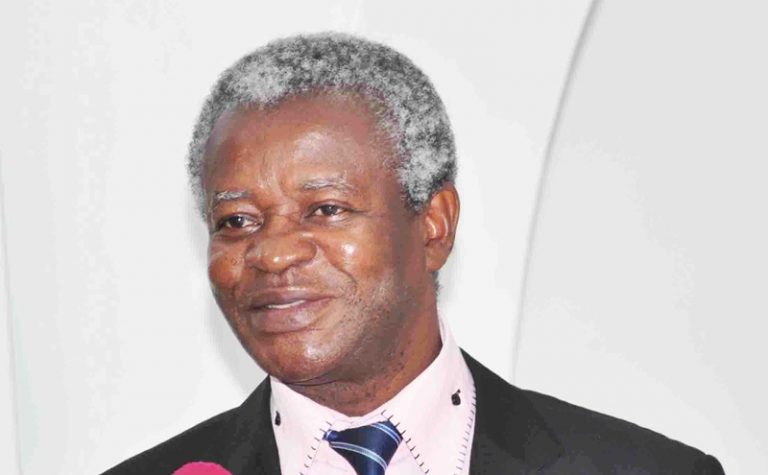Data from the Ghana Mental Health Authority (MHA) shows that the number of people who committed suicide in 2021 increased to 86 from the 69 recorded in 2020.
Similarly, attempted suicides also rose to 902 as at the end of 2021.
777 attempted suicides in 2020
This is 125 more than the 777 attempted suicides recorded in 2020.
797 attempted suicides in in 2018 and 880 cases in 2019
In 2018, suicide attempts in Ghana were 797 and rose to 880 in 2019 before dropping marginally to 777 in 2020.
Many cases not reported for fear of being stigmatised
Professor Akwasi Osei, the Chief Executive of Mental Health Authority, pointed out that many cases of suicide and attempted suicide are not reported due to fear of being stigmatised and fear of community repercussions.
Someone dies of suicide every 40 seconds
He cited global statistics which shows that someone dies of suicide every 40 seconds saying it must be a thing of the past.
More people are now being driven to choose suicide
He stated that awareness creation and education programmes about suicide have become more critical now than ever since more people are now being driven to choose suicide when they encountered personal issues.
Repeal of laws criminalising suicide
While calling for the repeal of laws criminalising suicide attempts from the criminal code, he pushed for proactive action and measures by all stakeholders to prevent the incidence of suicides and manage suicide behaviours.
Prof. Osei, appealed to organisations to protect their important human resource by promoting and integrating mental health interventions into their work culture since all workers are at risk of experiencing some mental health challenges at some point in time.
He advised the public to take every opportunity and learn about suicide and its warning signs and how they could help someone in distress and seek professional help for the individual.
This year’s World Suicide Prevention Day (WSPD was marked on the theme “a renewed worldwide commitment to preventing suicide; creating hope through action”, aimed at raising public awareness on the risk factors and triggers of suicide and how to deal with this urgent public health issue.
The silence surrounding suicide – and its prevention – is digging a grave for the youth in Ghana.
It was the classic study of Emile Durkheim on suicide in 1897 that exposed the subject matter to many people in the world.
The academic piece categorised the subject matter into egoistic, altruistic, anomic and fatalistic suicides.
According to the theorist, who was also a renowned sociologist, suicides of all sorts were blamable on the society, explaining that society pushes individuals to commit the act.
Anomic suicide reflects an individual’s moral confusion and lack of social direction, which is reflected in dramatic social and economic upheavals and includes extreme economic failures or dramatic economic fortunes.
Fatalistic suicide
Fatalistic suicide is common when a person is extensively regulated, when their futures are pitilessly blocked with oppressive discipline.
It occurs in oppressive societies such as prisons, because the person is denied of his/her freedom.
Other causal factors
Some also have the feeling of being a burden on others, feeling humiliated, having intense anxiety and panic attacks.
More so, losing interest in things, or losing the ability to experience pleasure, insomnia, becoming socially isolated and withdrawn from friends, family, and others are all signs to tragic incidents.
Traditional support systems have become weak in the country
Traditional support systems have become weak in the country, especially as economic and social nobilities are becoming supreme.
Government should introduce social protection policies to assist the less privileged in the society to overcome their problems.
Insurance policies
Insurance policies must equally be introduced to aid the people.
The classification of suicide as a criminal offence must also be looked at again while government should concentrate efforts at improving social relations and the living standards of the people.
Ghana cannot afford to lose precious lives through suicide, and something must be done without delay.
To forestall the possible increase in rates of suicide, it is imperative that national leaders turn their attention to mental health and make adequate investments in the area.
Ghana needs to ensure adequate and sustained funding for mental health services.
Community-based mental health services
It is time to invest convincingly in community-based mental health services so people can access psychosocial support in these times of social and economic hardships of an unwelcome virus.
Integrating mental health interventions
It is important to protect human resource by promoting and integrating mental health interventions into work culture.
Ghana needs proactive action and measures by all stakeholders to prevent the incidence of suicides and manage suicide behaviours.
Awareness creation and education programmes about suicide have become more critical now than ever since more people are now being driven to choose suicide when they encountered personal issues.
This is because all workers are at risk of experiencing some mental health challenges at some point in time.
Members of the public should to take every opportunity and learn about suicide and its warning signs and how they can help someone in distress and seek professional help for the individual.
- Tight Race For Next GIS Boss - 10 March 2025
- Church of Jesus Christ, Ga Mantse Foundation renovate Adabraka School - 27 June 2024
- Manufacturers, Trade Minister tussle over proposed cement price regulation - 26 June 2024




